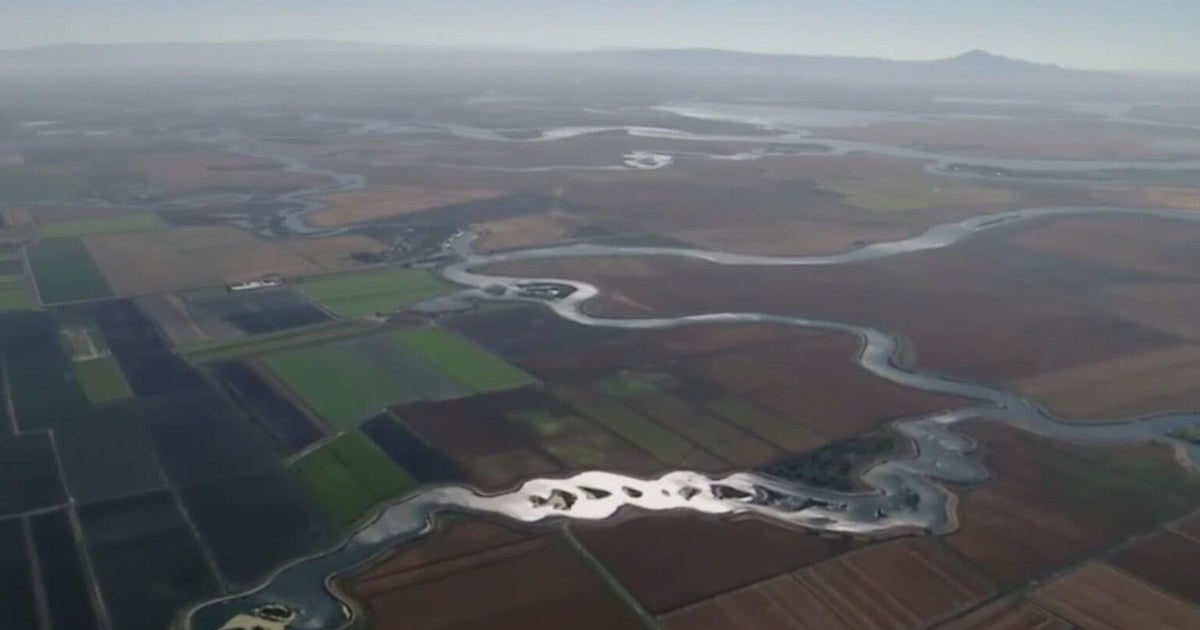California
How Trump has an edge in California GOP primary after state rule change

The California GOP altered its rules for allocating delegates in the state’s presidential primary, a move that could give former President Donald Trump a significant edge over his opponents in the 2024 election.
Trump is the front-runner for the GOP presidential nomination. RealClearPolitics puts the former president at an average of 52.4%, an almost 40-point margin ahead of Florida Gov. Ron DeSantis (R-FL). Trump is close to 50% ahead of candidates like former South Carolina Gov. Nikki Haley, former New Jersey Gov. Chris Christie, and Gov. Doug Burgum (R-ND), among others.
REPUBLICAN CANDIDATES TEST HOW FAR THEY CAN GO IN CRITICIZING TRUMP
In California, a predominately Democratic state, the Republican Party has looked to secure a tighter red stronghold, aiming to flip Congressional seats and elect a viable GOP candidate for the presidency.
Now, with the GOP changing its delegate rules, California Republicans could be opening the door for Trump and potentially discouraging other GOP primary candidates from campaigning in the state.
What is the new GOP delegate rule?
On Saturday, the California Republican Party’s 100-member executive committee changed the way delegates are allocated in a 52-16 vote.
Now, if a Republican candidate wins over 50% of the vote in the primary on March 5, they will receive all 169 delegates from the state — more delegates than any state in the nation.
If no one reaches this threshold, then the delegates will be split up among candidates proportional to the statewide vote.
State GOP leaders argue this will attract candidates to compete in California.
“Today’s vote … was a massive victory for California Republicans who are eager to have a say in deciding who our Party’s 2024 presidential nominee will be,” state party Chair Jessica Millan Patterson said in a statement via Los Angeles Times. “Republican presidential candidates will not only be encouraged to spend real time campaigning in our state and making their case to voters, but Republican voters will equally be encouraged to turn out to support their chosen candidate to help them win delegates.”
If the GOP did not change the rules, the party would have lost half of its delegates to the Republican National Convention for not meeting delegate criteria.
Many state Republican parties had made similar changes to their primary rules ahead of the 2020 election, adding more winner-take-all contests and requiring a higher percentage of the vote to win delegates.
Why are some Republicans against this rule change?
The original system, which has been in place for two decades, allocated three delegates for each congressional district won. The system allowed a candidate to strategically campaign in a handful of areas in California instead of targeting the entire state.
Former state GOP executive director Jon Fleischman, who served in 2000 when the original system was adopted, said in an interview with the LA Times that the new rule would prevent this type of competition among candidates.
Fleischman said no GOP presidential candidate would be incentivized to come to California and campaign.
“The cost to advertise statewide is too great, and the impact of trying to motivate volunteers is too small,” Fleischman said. “So they will go to other states and ignore California in the primary, as they ignore California in the general election.”
Some Republican protesters have argued the decision should have been discussed with the over 1,400 party members at the fall convention, not just the executive committee. State GOP officials said that they were on a deadline to submit their new rules to the RNC to maintain the allotment of delegates.
Where do the top candidates stand on this rule change?
Trump’s team is in full support of the California GOP’s rule change while DeSantis’s team has blasted the state’s Republicans for ignoring voters who want a different GOP candidate in the 2024 general election.
An executive committee member told the Los Angeles Times that they spoke to Trump’s campaign and they supported the rule change, saying polling shows he can win more than 50% of primary voters in California.
Ken Cuccinelli, founder of the pro-DeSantis Never Back Down super PAC, blasted the state GOP’s decision to ignore a different proposal that could have favored the Florida governor.
Under that proposal, three delegates would have been awarded by congressional district, with two going to the winner in each district and the third going to the second-place finisher. With DeSantis maintaining a steady runner-up status in most polls, this method would have likely benefited him come primary time in March.
CLICK HERE TO READ MORE FROM THE WASHINGTON EXAMINER
“Smoke-filled back rooms do not reflect the will of or benefit voters in any state. Yet across the country, games are afoot to enhance the potential outcome of primary elections for one former president who half of the Republican electorate no longer wants as the party leader,” Cuccinelli said in a statement.
But “even with these asinine primary rules changes,” Cuccinelli added, “we remain confident Governor DeSantis will become the Republican nominee and 47th president of the United States.”

California
Millennial Democrat Ian Calderon announces bid for California governor
California
2 bills meant to speed up California Delta Tunnel project die without vote

Last Tuesday, the California Legislature cast a vote on Gov. Gavin Newsom’s controversial water tunnel project in the Sacramento-San Joaquin River Delta by not voting at all.
A couple of bills meant to speed up the process were allowed to die in committee before reaching the state Assembly. Opponents of the project consider it a victory in a fight to protect the water of the delta and the towns that live along its banks.
The delta town of Isleton sits frozen in time, a relic from its “Old West” past. It may be a little quiet these days, but it’s no ghost town — yet. It all depends on the river that runs alongside the town.
“Well, the history of Isleton is really deep in the river,” said Iva Walton. “Isleton used to be the main stop on the steamboat between Sacramento and San Francisco. So, it has a long history of depending on the traffic on the river.”
Walton owns the Mei Wah Beer Room, a former Chinese saloon and brothel in the 1800s. The whole town relies on people visiting the delta, and the proposal to bury a giant tunnel to siphon off billions of gallons of water farther up the Sacramento River to send to Southern California cities and Central Valley farms has drawn the ire of many people living along the delta.
“I think, in general, people are aware that it would be bad for the environment, for the property, the land, and the tourism that comes out here, if the tunnels were to drain a lot of the water from here,” Walton said. “It just seems ridiculous to take from something that is a fragile environment. There has to be other options.”
Still, Newsom has made it his key climate resilience initiative. In his May budget revision, he included a pair of bills that would make things go faster by exempting it from CEQA, simplifying permitting, allowing the state to acquire land, authorizing bonds to pay for the project, and limiting future legal challenges to the tunnel.
His office released a statement saying: “For too long, attempts to modernize our critical water infrastructure have stalled in endless red tape, burdened with unnecessary delay. We’re done with barriers — our state needs to complete this project as soon as possible, so that we can better store and manage water to prepare for a hotter, drier future. Let’s get this built.”
“Barriers are put in its way,” said Jon Rosenfield. “Those barriers being the state’s laws that everyone else needs to comply with. But the governor seems determined to try to circumvent those laws to get his tunnel built.”
Rosenfield is science director for SF Baykeeper, one of the groups opposing the tunnel for the damage they think it would inflict on already faltering fish populations downstream in the delta. But he thinks it is the project’s whopping price tag that caused legislators to let the bills die without a vote.
“I think it means there’s not a lot of support for the Delta Conveyance Project,” Rosenfield said. “I think the majority party, which is the governor’s own party in the legislature, is rightfully concerned about the cost of living. And taking on another $60-100 billion project that doesn’t really address our problems, that would still require more money to address, is not a winning proposition at this time, or ever.”
It’s also not a winning proposition in Isleton, where protecting the river is considered vital.
“It’s an amazing place and I would hate to see it go away,” said Walton.
If approved, the tunnel would run 45 miles from the Sacramento River to an existing reservoir near Livermore, before heading south via the California Aqueduct. Construction probably couldn’t begin until 2029 and would take at least 15 years to complete.
First, the project will have to undergo the normal regulatory process, at least for now.
Newsom said he would like to see the tunnel fully entitled by the time he leaves the governor’s seat. There are major political forces at work and no one seems to think this will be the end of it.
California
Lawyers fear 1,000 children from Central America, dozens in California, are at risk of being deported

Lawyers and advocates fear about 1,000 Central American children, including dozens in California, are at risk of being deported to dangerous situations in their home countries before finishing their immigration court proceedings.
They believe the U.S. government is now expanding their list of hundreds of children across the country, which started with children from Guatemala, to include those from Honduras and El Salvador. Lawyers for some children saw their scheduled hearings disappear from the immigration court calendars in recent weeks.
“It has been heartbreaking and infuriating these last two weeks to have to warn our child clients that our government seeks to violate their rights and return them to danger,” said Marion Donovan-Kaloust, director of legal services at the Los Angeles-based Immigrant Defenders Law Center, which represents unaccompanied minors. “The fact that the government is doubling down on this cruel scheme should shock everyone’s conscience.”
In the middle of the night over Labor Day weekend, the government removed 76 Guatemalan children from shelters in Arizona and Texas. Many of their cases had vanished from calendars before the Department of Homeland Security placed them on a plane set to return to Guatemala without telling their parents, according to court documents.
A transport van with migrants onboard departs the Valley International Airport, Sunday, Aug. 31, 2025, in Harlingen, Texas.
(Michael Gonzalez / Associated Press)
A federal judge blocked the flight in an emergency order as children sat aboard a plane on the tarmac. Many feared for their safety should they return to Guatemala, where attorneys say they face gang violence, physical abuse and neglect.
U.S. Department of Justice attorney Sara Welch said during a hearing this week there were “no immediate plans” to remove immigrant children from other countries. The Department of Homeland Security and the Refugee Resettlement office did not respond to requests for comment.
A legal aid worker with knowledge of the situation said Honduran counterparts are expecting 300 children to be returned to the country, which would account for nearly all Honduran children in Office of Refugee Resettlement custody nationwide. Another 100 unaccompanied children from El Salvador are in U.S. government custody, said the worker, who requested anonymity to share sensitive details.
Earlier this summer, Guatemalan officials said U.S. officials had sent them a list of 609 teenagers ages 14-17 to be returned to the country. At least 40 immigrant children living in California were on that list, the legal aid worker said.
In a Sept. 6 sworn declaration, Angie Salazar, acting director of the refugee resettlement office, said that 457 Guatemalan children were initially identified as “potentially appropriate for reunification with a parent or legal guardian,” but that after reviewing individual cases, 327 children were determined to be ultimately eligible for removal from the U.S.
During the hearing this week, Welch walked back earlier government assertions that the children’s parents had asked for them to be returned, after lawyers for the minors produced a memo from the Guatemalan Attorney General that showed officials had contacted about 115 families, nearly half of whom were upset at the prospect of their child being returned.
Another 50 families said they were willing to accept the children, but had not asked for their return. In one case, the memo noted the parents said they will “do everything possible” to get their daughter out of the country again, “because she had received death threats.”
Since the deportation attempt over the holiday weekend, attorneys for the children, who crossed the border without legal guardians and are now under the care of the Office of Refugee Resettlement, have been on high alert.
One attorney with the non profit Estrella del Paso in Texas said in sworn statements that on Sept. 5 she received an anonymous call from a shelter that the “government was planning to repatriate all children under the ORR custody without making any announcements.”
Another attorney, Roxana Avila-Cimpeanu, deputy director of the Florence Immigrant & Refugee Rights Project in Arizona similarly said the same day that “credible reports continued to stream in from the network regarding the imminent removal of Honduran children.”
The facilities that did not wake up the Guatemalan children in the middle of the night were sent a “DEMAND FOR COMPLIANCE” letter from the Office of Refugee Resettlement on Aug. 31.
“Negligent or intentional failure to comply with lawful requests from ORR regarding the care of the children in your care facility will result in prompt legal action and may result in civil and criminal penalties and charges, as well as suspension and termination of contractual relations with your facility,” states the letter, which was obtained by The Times.
The letter frightened shelters and foster families, said Shaina Aber, executive director of the Acacia Center for Justice.
“We have heard from shelters and foster families that they are very nervous and they don’t know whether to follow the law as they understand it from years of doing this work, or to go along with this novel extrajudicial process,” Aber said.
Lawyers in the case are asking Judge Timothy R. Kelly, a Trump appointee, to extend the emergency order, which expires Sunday, and halt the removal of children from other countries who don’t wish to be returned. They argue U.S. officials do not have authority to remove them without providing them an opportunity to have their cases for asylum heard before an immigration judge.
“I am certain that people there who hurt me and threatened to kill me before will once again hurt me and will carry out their threats to kill me,” said one 17-year-old identified as D.I.R. in court records.
Among those named is a 16-year-old Guatemalan boy in long term foster care in Fullerton. His immigration proceedings had been closed and not yet decided. Another is a 16-year-old Guatemalan girl living in foster care in Riverside. She’s in immigration proceedings and is scared of being sent back. Both are being represented by the Immigrant Defenders Law Center.
Some Guatemalan children in the U.S. were interviewed by officers with Homeland Security Investigations, a branch of Immigration and Customs Enforcement, said Efrén C. Olivares, Vice President of Litigation and Legal Strategy for the National Immigration Law Center. Some family members in Guatemala also received calls from local government officials who said their children would be sent back.
Olivares, one of the lead attorneys for the plaintiffs in Washington, warned if the court sided with the Trump administration, “they can do this to all children in ORR custody of every nationality.”
“That’s the worst-case scenario,” he said.
Guatemalan officials have publicly acknowledged efforts to coordinate with the U.S. to receive hundreds of children currently held in U.S. facilities.
The Honduran government posted on X Sept. 1 that it had initiated efforts to coordinate the “safe return of minors deported from the United States.”
While the Salvadoran government has not released public communications about the repatriation of children from the U.S., Olivares pointed to the coordination between the two governments earlier this year, when hundreds of Venezuelan migrants in the U.S. were sent to a notorious mega-prison in El Salvador.
“It’s worrisome that they have a very close relationship,” Olivares said
Meanwhile, two localized cases are playing out in Illinois and Arizona.
On Thursday, a federal judge in Arizona temporarily blocked the Trump administration from removing dozens of Guatemalan and Honduran children living there in shelters or foster care. Similarly, a federal judge stopped the removal of Guatemalan children in Illinois, and a hearing is set for Tuesday.
“These are children who are literally here without without a parent, and very vulnerable,” said Laura Smith, executive director of the Children’s Legal Center in Chicago and an attorney on the Illinois case, who also got word from a facility shortly after Labor Day that immigration officials were readying to take custody of Honduran children. “So I am surprised by the administration’s attacks.”
The move to deport unaccompanied children comes amid broader efforts to strip away protections for young immigrants. For instance, the Administration has sought to end funding for lawyers who represent unaccompanied children. It is also seeking to end a decades-old agreement that requires minimum standards of care for children held in detention.
-

 World1 week ago
World1 week agoTrump and Zelenskyy to meet as Poland pressures NATO on no fly zone over Ukraine
-

 Technology1 week ago
Technology1 week agoNew Evite phishing scam uses emotional event invitations to target victims
-

 Health1 week ago
Health1 week agoDiabetes risk quadruples with use of popular natural remedy, study finds
-

 Politics1 week ago
Politics1 week agoHouse plans Thursday vote on government funding bill to extend spending through November
-

 Business1 week ago
Business1 week agoDisney, Universal and Warner Bros. Discovery sue Chinese AI firm as Hollywood's copyright battles spread
-

 Health1 week ago
Health1 week agoWho Makes Vaccine Policy Decisions in RFK Jr.’s Health Department?
-

 Finance3 days ago
Finance3 days agoReimagining Finance: Derek Kudsee on Coda’s AI-Powered Future
-

 Lifestyle1 week ago
Lifestyle1 week agoBobbi Brown doesn’t listen to men in suits about makeup : Wild Card with Rachel Martin
















